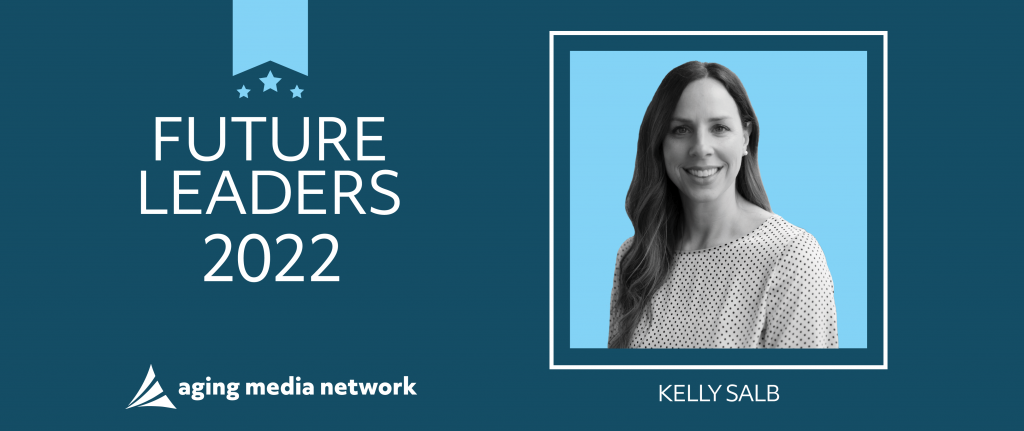
Future Leaders: Kelly Salb, Director of Client Services, Family & Nursing Care
The Future Leaders Awards program is brought to you in partnership with PointClickCare. The program is designed to recognize up-and-coming industry members who are shaping the next decade of senior housing, skilled nursing, home health, and hospice care. To see this year’s Future Leaders, visit https://futureleaders.agingmedia.com/.
Kelly Salb, director of client services at Family & Nursing Care, has been named a 2022 Future Leader by Home Health Care News.
To become a Future Leader, an individual is nominated by their peers. The candidate must be a high-performing employee who is 40 years old or younger, a passionate worker who knows how to put vision into action, and an advocate for seniors and the committed professionals who ensure their well-being.
Salb sat down with HHCN to talk about her upbringing in health care, why insurance should cover home care needs and the future of the space in a post-pandemic world.
HHCN: What drew you to this industry?
I grew up in a small town as part of a large family. From an early age, my mother ingrained in us the importance of compassion, empathy and being of service to others. Through her example, I developed a strong passion to help people navigate through difficult situations in life, which inevitably led me to study social work in school.
For my college internship, I was fortunate enough to be placed in a local nursing home where I fell in love with helping the aging population. As an intern, I learned to fully appreciate the fact that everyone has a unique story and people are not defined by their ailments, diagnoses or limitations. That experience inspired me to pursue a career where I felt I could help as many people as possible in times when they’re most vulnerable.
What’s your biggest lesson learned since starting to work in this industry?
It’s extremely important to meet people where they are. Being an “active listener” remains imperative as we establish the necessary level of understanding required to best serve people. Once a personal relationship is developed, we’re better prepared to provide care for everyone’s most valuable asset: their loved ones.
If you could change one thing with an eye toward the future of home-based care, what would it be?
I would love for our health insurance companies to start covering home care needs – not just long-term care policies – as it would help alleviate the financial burden placed on families.
Home-based care is an incredibly beneficial service and one that most people will likely need in their lifetime, so let’s rethink the way our system operates to where people aren’t discouraged to seek quality care due to financial constraints.
What do you foresee as being different about the home-based care industry looking ahead to 2023?
In a post-pandemic world, I see the need for home care growing tremendously. Many older adults are aging in place and don’t want to leave the comfort of their environment, wherever that may be for them. Home care is an option where loved ones can receive special individualized care within a place they feel safe.
This also means we will most likely experience a higher rate of caregiver burnout, including family caregivers. We as a society will need to stress the importance of providing more educational opportunities and resources to our caregivers.
In a word, how would you describe the future of home-based care?
Dynamic.
If you could give advice to yourself looking back to your first day in the industry, what would it be and why?
Don’t take things personally.
In this industry, we often speak with people when their emotions are heightened and in crisis mode. It’s our job to serve as supportive advocates to ease their concerns and simply be there to guide them to the appropriate resources, even if home care is not their immediate need.